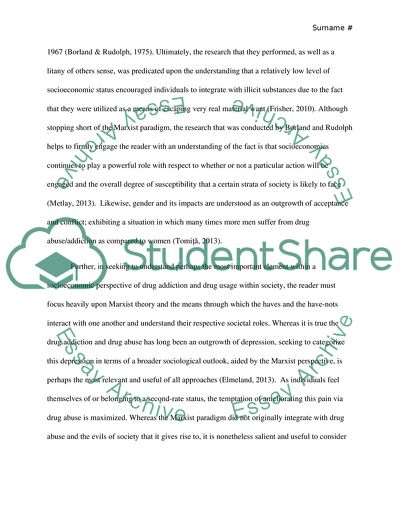Cite this document
(A Sociological Interpretation of Drug Addiction Essay Example | Topics and Well Written Essays - 1250 words, n.d.)
A Sociological Interpretation of Drug Addiction Essay Example | Topics and Well Written Essays - 1250 words. https://studentshare.org/sociology/1820071-drug-addiction
A Sociological Interpretation of Drug Addiction Essay Example | Topics and Well Written Essays - 1250 words. https://studentshare.org/sociology/1820071-drug-addiction
(A Sociological Interpretation of Drug Addiction Essay Example | Topics and Well Written Essays - 1250 Words)
A Sociological Interpretation of Drug Addiction Essay Example | Topics and Well Written Essays - 1250 Words. https://studentshare.org/sociology/1820071-drug-addiction.
A Sociological Interpretation of Drug Addiction Essay Example | Topics and Well Written Essays - 1250 Words. https://studentshare.org/sociology/1820071-drug-addiction.
“A Sociological Interpretation of Drug Addiction Essay Example | Topics and Well Written Essays - 1250 Words”. https://studentshare.org/sociology/1820071-drug-addiction.


